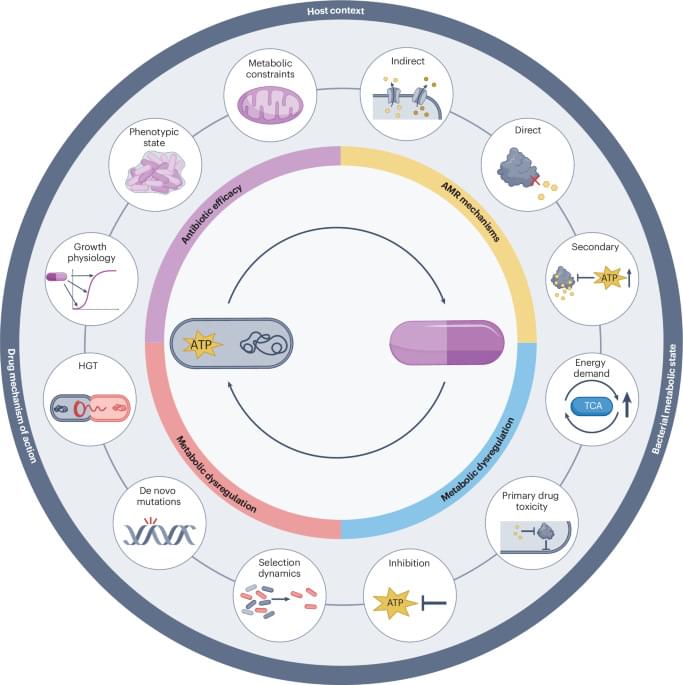00:00 Intro.
00:20 José Delgado’s beginnings with BCIs.
00:42 Use of BCI to reduce aggression.
00:57 How the brain and nerve cells work.
03:00 Stimulation of brain areas (motor cortex)
03:51 How Utah arrays works!
05:16 Measurement of voltage peaks (spikes)
06:06 How the Neuralink N1 works!
08:20 How the Stentrode by Synchron works!
09:40 The future of exoskeletons.
09:53 Are we becoming machines ourselves?
Get the latest international news and world events from around the world.

Frontostriatal Networks Undergo Functional Specialization During Adolescence that Follows a Ventral-Dorsal Gradient: Developmental Trajectories and Longitudinal Associations
New in JNeurosci: Klein et al. characterized changes in the brain as people age and discovered that neural changes in teenagers may predict how decision-making and behavioral control develop.
▶️
Seminal studies in animal neuroscience demonstrate that frontostriatal circuits exhibit a ventral-dorsal functional gradient to integrate neural functions related to reward processing and cognitive control. Prominent neurodevelopmental models posit that heightened reward-seeking and risk-taking during adolescence result from maturational imbalances between frontostriatal neural systems underlying reward processing and cognitive control. The present study investigated whether the development of ventral (VS) and dorsal (DS) striatal resting-state connectivity (rsFC) networks along this proposed functional gradient relates to putative imbalances between reward and executive systems posited by a dual neural systems theory of adolescent development. 163 participants aged 11–25 years (54% female, 90% white) underwent resting scans at baseline and biennially thereafter, yielding 339 scans across four assessment waves. We observed developmental increases in VS rsFC with brain areas implicated in reward processing (e.g., subgenual cingulate gyrus and medial orbitofrontal cortex) and concurrent decreases with areas implicated in executive function (e.g., ventrolateral and dorsolateral prefrontal cortices). DS rsFC exhibited the opposite pattern. More rapid developmental increases in VS rsFC with reward areas were associated with developmental improvements in reward-based decision making, whereas increases in DS rsFC with executive function areas were associated with improved executive function, though each network exhibited some crossover in function. Collectively, these findings suggest that typical adolescent neurodevelopment is characterized by a divergence in ventral and dorsal frontostriatal connectivity that may relate to developmental improvements in affective decision-making and executive function.
Significance Statement Anatomical studies in nonhuman primates demonstrate that frontostriatal circuits are essential for integration of neural functions underlying reward processing and cognition, with human neuroimaging studies linking alterations in these circuits to psychopathology. The present study characterized the developmental trajectories of frontostriatal resting state networks from childhood to young adulthood. We demonstrate that ventral and dorsal aspects of the striatum exhibit distinct age-related changes that predicted developmental improvements in reward-related decision making and executive function. These results highlight that adolescence is characterized by distinct changes in frontostriatal networks that may relate to normative increases in risk-taking. Atypical developmental trajectories of frontostriatal networks may contribute to adolescent-onset psychopathology.
Sabine is Going to Hate This… But I Have Proof!
Please join my mailing list here 👉 https://briankeating.com/list to win a meteorite 💥
Sabine (@SabineHossenfelder) argues that superdeterminism eliminates free will, challenging the idea of causal choice and possibly undermining science if the laws of physics govern all phenomena. However, inspired by daily life experiences in Southern California, I present a defense of indeterminism, countering the claim that everything is predetermined, while also exploring the ideas of cosmologists Raphael Bousso and Alan Guth.
Sabine Hossenfelder, a theoretical physicist, has argued in favor of superdeterminism, a theory that suggests the universe is deterministic and that our choices are predetermined.
Does Superdeterminism save Quantum Mechanics? Or does it kill free will and destroy science? https://www.youtube.com/watch?v=ytyjgIyegDI
According to her, the apparent randomness in quantum mechanics is an illusion, and the universe is actually a predetermined, clockwork-like system. She claims that if we knew enough about the initial conditions of the universe, we could predict every event, including human decisions.
Hossenfelder’s argument relies on the idea that the randomness in quantum mechanics is not fundamental, but rather a result of our lack of knowledge about the underlying variables. She suggests that if we could access these “hidden variables,” we would find that the universe is deterministic. However, this argument is flawed.
For example, consider the double-slit experiment, where particles passing through two slits create an interference pattern on a screen. Hossenfelder would argue that the particles’ behavior is predetermined, and that the apparent randomness is due to our lack of knowledge about the initial conditions. However, this ignores the fact that the act of observation itself can change the outcome of the experiment, a phenomenon known as wave function collapse.
This Brain Organoid Shockingly Outperforms Our AI!
In this video, Dr. Ardavan (Ahmad) Borzou will discuss a rising technology in constructing bio-computers for AI tasks, namely Brainoware, which is made of brain organoids interfaced by electronic arrays.
Need help for your data science or math modeling project?
https://compu-flair.com/solution/
🚀 Join the CompuFlair Community! 🚀
📈 Sign up on our website to access exclusive Data Science Roadmap pages — a step-by-step guide to mastering the essential skills for a successful career.
💪As a member, you’ll receive emails on expert-engineered ChatGPT prompts to boost your data science tasks, be notified of our private problem-solving sessions, and get early access to news and updates.
👉 https://compu-flair.com/user/register.
Comprehensive Python Checklist (machine learning and more advanced libraries will be covered on a different page):
https://compu-flair.com/blogs/program… — Introduction 02:16 — Von Neumann Bottleneck 03:54 — What is brain organoid 05:09 — Brainoware: reservoir computing for AI 06:29 — Computing properties of Brainoware: Nonlinearity & Short-Memory 09:27 — Speech recognition by Brainoware 12:25 — Predicting chaotic motion by Brainoware 13:39 — Summary of Brainoware research 14:35 — Can brain organoids surpass the human brain? 15:51 — Will humans evolve to a body-less stage in their evolution? 16:30 — What is the mathematical model of Brainoware?
00:00 — Introduction.
02:16 — Von Neumann Bottleneck.
03:54 — What is brain organoid.
05:09 — Brainoware: reservoir computing for AI
06:29 — Computing properties of Brainoware: Nonlinearity & Short-Memory.
09:27 — Speech recognition by Brainoware.
12:25 — Predicting chaotic motion by Brainoware.
13:39 — Summary of Brainoware research.
14:35 — Can brain organoids surpass the human brain?
15:51 — Will humans evolve to a body-less stage in their evolution?
16:30 — What is the mathematical model of Brainoware?
Central Florida Brain Bee Lecture #1-Anatomy of the Central Nervous System (Detailed)
Video made solely for educational purposes.
All rights reserved to their respective holders.
Made in association with the University of Central Florida.
Brain Monitoring & Manipulation
Lecture by Jeffrey D. Schall, Ph.D.
How to Remote Control a Human Being | Misha Sra | TEDxBeaconStreetSalon
For over a century, galvanic vestibular stimulation (GVS) has been used as a way to stimulate the inner ear nerves by passing a small amount of current.
We use GVS in a two player escape the room style VR game set in a dark virtual world. The VR player is remote controlled like a robot by a non-VR player with GVS to alter the VR player’s walking trajectory. We also use GVS to induce the physical sensations of virtual motion and mitigate motion sickness in VR.
Brain hacking has been a futurist fascination for decades. Turns out, we may be able to make it a reality as research explores the impact of GVS on everything from tactile sensation to memory.
Misha graduated in June 2018 from the MIT Media Lab where she worked in the Fluid Interfaces group with Prof Pattie Maes. Misha works in the area of human-computer interaction (HCI), specifically related to virtual, augmented and mixed reality. The goal of her work is to create systems that use the entire body for input and output and automatically adapt to each user’s unique state and context. Misha calls her concept perceptual engineering, i.e., immersive systems that alter the user’s perception (or more specifically the input signals to their perception) and influence or manipulate it in subtle ways. For example, they modify a user’s sense of balance or orientation, manipulate their visual attention and more, all without the user’s explicit awareness, and in order to assist or guide their interactive experience in an effortless way.
The systems Misha builds use the entire body for input and output, i.e., they can use movement, like walking, or a physiological signal, like breathing as input, and can output signals that actuate the user’s vestibular system with electrical pulses, causing the individual to move or turn involuntarily. HCI up to now has relied upon deliberate, intentional usage, both for input (e.g., touch, voice, typing) and for output (interpreting what the system tells you, shows you, etc.). In contrast, Misha develops techniques and build systems that do not require this deliberate, intentional user interface but are able to use the body as the interface for more implicit and natural interactions.
Misha’s perceptual engineering approach has been shown to increase the user’s sense of presence in VR/MR, provide novel ways to communicate between the user and the digital system using proprioception and other sensory modalities, and serve as a platform to question the boundaries of our sense of agency and trust.
When the universe branches, what happens to me? with Stephen Wolfram
When the universe branches, we branch with it. Those branches don’t remain forever apart. They come back together. So we, as conscious observers, are rescued f…

When overcoming cancer becomes personal
“Anyone with lungs can get lung cancer.” Kelly thought it couldn’t happen to her—until it did. Having worked at Pfizer for over 25 years, she knew how an unexpected diagnosis could suddenly turn someone’s life upside down, but nothing could have prepared her for her own cancer journey.
After developing a chronic cough, Kelly was looking for answers. She had appointments with several healthcare providers and specialists who diagnosed her with everything from gastroesophageal reflux disease to long COVID. Nothing gave her relief. Kelly’s symptoms only got worse; her cough soon became debilitating, and she developed shortness of breath. After months of frustration, she decided to take matters into her own hands and called a friend who works as a pulmonologist. After hearing her symptoms, he booked Kelly for a CT scan right away. Minutes after the test was complete, she received news that turned her life upside down—she had cancer.
Despite significant advancements, millions of people across the globe face a cancer diagnosis each year. For the Pfizer Oncology team, these individuals are more than a statistic—they are parents, children, friends and colleagues.

The role of bacterial metabolism in antimicrobial resistance
In this Review, Ahmad et al. examine how antibiotics influence bacterial metabolism and how metabolism, in turn, affects drug efficacy and the emergence and evolution of antimicrobial resistance. They also explore the role of bacterial metabolism in clinical contexts and the potential for metabolic-based therapies to improve antibacterial treatment.